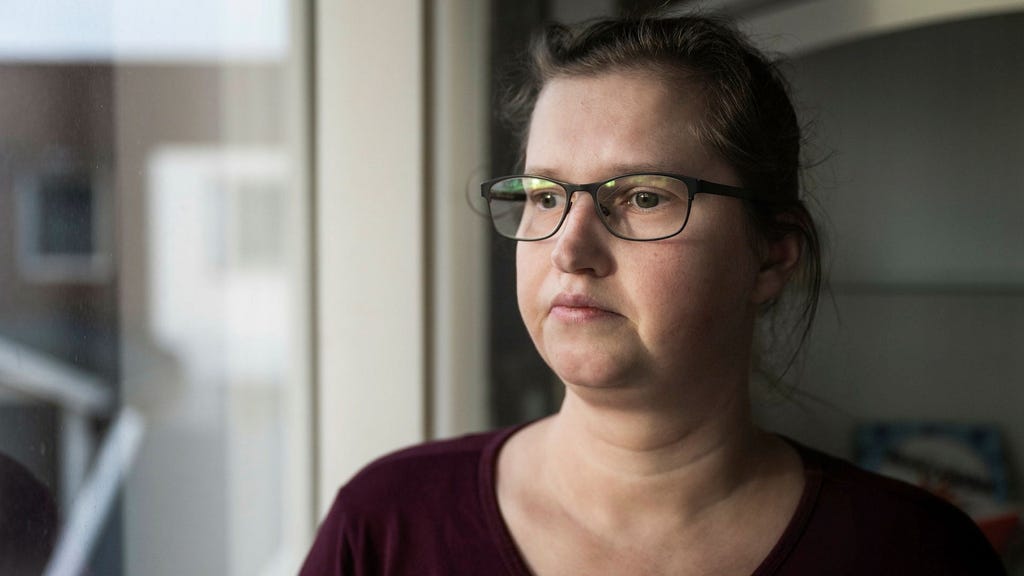Evelina Lindberg, a resident of Norrbotten, Sweden, has become a prominent figure in local news due to her ongoing battle with the Piteå municipality over the reduction of her personal assistance hours. Evelina, who is deafblind, relies on tactile sign language for communication, a unique form of signing where messages are conveyed through touch. A year ago, the municipality drastically cut her support from 20 hours per week to none, claiming that other social services, like home care and escort services, would be sufficient. This decision disregarded the crucial role communication plays in Evelina’s life, leaving her feeling isolated and trapped in her own home. Before the cuts, Evelina had a dedicated support person proficient in tactile sign language, enabling her to engage with the world around her. Now, simple tasks like grocery shopping, cooking, or even knowing the weather conditions outside have become insurmountable challenges.
The municipality’s decision to remove communication support has had a profound impact on Evelina’s well-being, both physically and mentally. The fear of strangers entering her home without the ability to communicate is distressing. Evelina’s inability to convey her needs, preferences, and concerns undermines her independence and agency. The situation also impacts her mother, Ingela Lindberg, who has become Evelina’s primary communication link, a role that has taken a toll on her own health, leading to a leave of absence from work. Ingela and Evelina both stress the importance of communication for deafblind individuals, emphasizing that it is the foundation upon which all other forms of support are built. Without communication, access to other services becomes meaningless.
The case has been a subject of legal battles throughout the year, with varying outcomes. Initially, the Administrative Court in Luleå ruled largely in Evelina’s favor, but the municipality appealed and subsequently won in the Administrative Court of Appeal in Sundsvall. Public outcry followed the ruling, with numerous Piteå residents demonstrating their support for Evelina, including the local band Euskefeurat. As a result of the protests, the municipality partially reversed its decision, introducing a new guideline offering deafblind individuals four hours of tactile sign language support per week. While Evelina welcomes this as a step in the right direction, she believes it falls far short of addressing the fundamental issue: communication is essential for all aspects of her daily life. The four hours, she argues, are insufficient to cover the numerous situations requiring interaction and understanding.
Piteå municipality representatives, while declining to comment specifically on Evelina’s case, maintain that the four hours are meant to supplement, not replace, the interpreter services provided by the region under the Health and Medical Services Act. These interpreters, however, are typically for medical appointments and official meetings, not for everyday communication at home. The municipality also highlights the availability of a deafblind ombudsman who can assist with social activities, furthering their argument that they are providing adequate support. They claim their approach is in line with national standards and legal interpretations.
However, Anna Quarnström, a legal counsel at the National Association of the Visually Impaired, sees Evelina’s case as representative of a disturbing trend across Swedish municipalities. She notes an increasing reliance on minimal legal requirements when providing services to visually impaired and deafblind individuals, often to the detriment of their well-being. Quarnström’s observation echoes the findings of a government-commissioned report by the National Board of Health and Welfare, which documented a decade-long decline in support for this vulnerable population. Evelina, meanwhile, continues to live in a state of limbo, waiting for decisions that will determine her future. She expresses frustration at the constant need to fight for her basic right to communicate and participate in society.
Recently, a glimmer of hope emerged. The Administrative Court issued a new ruling stating that Evelina qualifies for support under the Act on Support and Service for Persons with Certain Functional Impairments (LSS), a law designed to ensure not just “reasonable” but “good” living conditions. This legal distinction, according to Evelina’s legal representative, Malin Palm, strengthens her position significantly. The LSS focuses on individualized support, granting individuals more control over who provides their care and, potentially, leading to an increase in support hours. Evelina remains determined to continue her fight, not just for herself but for all deafblind individuals who deserve to have their communication needs met and live full, independent lives. She hopes that by sharing her story and advocating for change, she can contribute to a more inclusive and accessible society for everyone.














